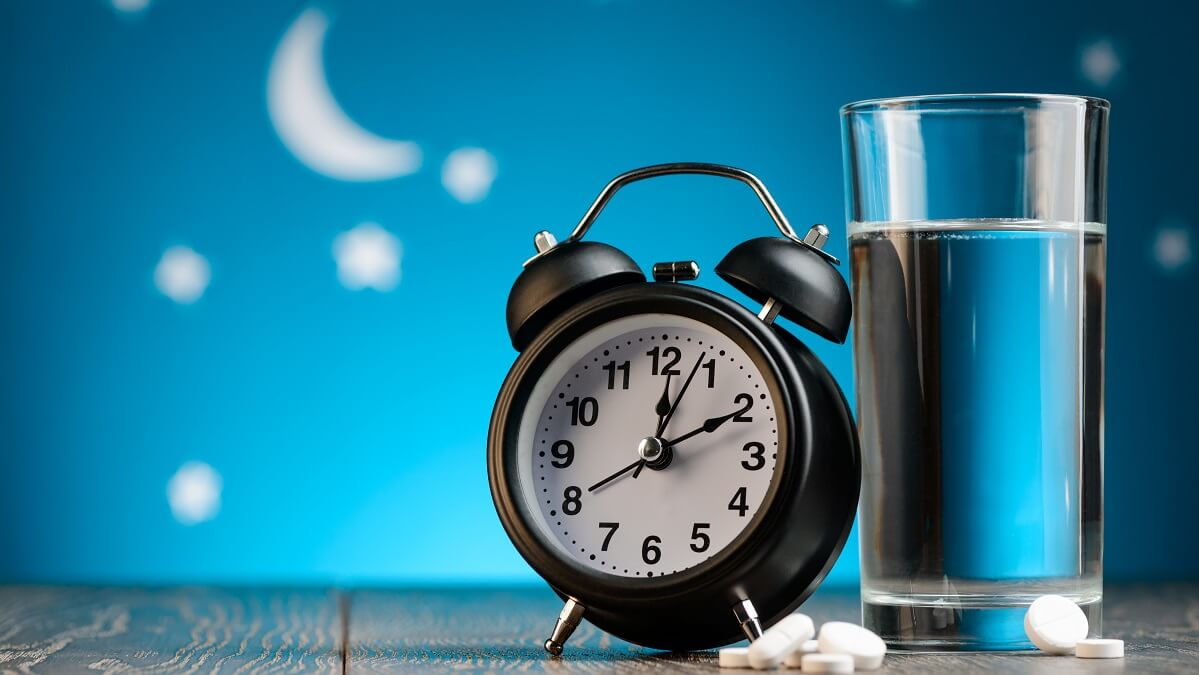Melatonin is a hormone that works to control your body’s internal clock, which determines when you go to sleep. Your brain naturally creates and releases melatonin depending on how much light is present. But as you age, the amount of melatonin your brain produces often decreases. You can take melatonin in supplement form to make up for this.
Melatonin and sleep
Melatonin is most commonly associated with aiding sleep-related issues such as jet lag, insomnia, and delayed sleep phase disorder, a condition that causes a person to fall asleep and awake at a later time.
It has also been used to treat circadian rhythm sleep disorders in those with vision impairments. Although melatonin can help to reduce the time taken to fall asleep, further research is required to assess the impact it has on sleep quality and sleep duration as well as its effectiveness in improving sleep in people who work night shifts.
Other health benefits
Melatonin’s influence may go beyond just sleep, as preliminary studies indicate it can influence body temperature and reduce nocturnal blood pressure in people with hypertension. However, the effects of melatonin on blood sugar remain unclear. Animal studies have indicated that it could be involved in weight loss, but further research is necessary to determine whether this is also true in humans.
Research is being conducted to further explore the potential benefits of melatonin. There is evidence to suggest that it may be useful in cases of macular degeneration, gastroesophageal reflux disease (heartburn), tinnitus (ringing in the ears), and migraines.
Read: Is sleeping poorly a gender issue?
How safe is melatonin?
Melatonin is similar to a sleeping pill and is generally deemed safe for occasional use. However, there is still some uncertainty regarding its long-term effects. To ensure safety, it is best to consult a doctor before taking melatonin, especially if you are pregnant, breastfeeding, or have a medical condition such as dementia, epilepsy, or an autoimmune disease. Some people might have an allergic reaction to melatonin.
Possible side-effects
The most common side-effects of melatonin include headaches, dizziness, nausea and sleepiness during the day. Less common adverse reactions may include confusion, stomach cramps, crankiness or depression, tremors, and anxiety. Should you experience any of these, consult your doctor to find out if it’s okay to keep taking melatonin.
Read: Why interrupted sleep is normal
Drug interactions
Melatonin may have contraindications with certain medications, including:
- anticonvulsants
- blood thinners
- blood pressure drugs
- central nervous system depressants
- diabetes medications
- diazepam
- drugs that lower your seizure threshold
- fluvoxamine
- immunosuppressants.
Natural production of melatonin
Your body produces its own melatonin, and some foods, such as eggs, fish, and nuts, are naturally rich in melatonin. You can also find melatonin in some mushrooms and grains. Tart cherries boast both melatonin and tryptophan, an amino acid used for the synthesis of melatonin and serotonin. This mixture might help with falling asleep faster and staying asleep for longer.
Melatonin dosage
Most people begin with a dose of 0.3 to 1mg of melatonin. If this is not effective, speak to your doctor about increasing the amount. Be aware that it is possible to take too much melatonin, which may lead to headaches, nausea, and excessive sleepiness during the day.
Read: Which is the best sleep position?
When to take melatonin
To maximise the effects of melatonin, it is best to take it around two hours before bedtime. To ensure a good night’s sleep, make sure your bedroom is dark and cool, and abstain from using screens too late in the evening. Additionally, make it a habit to go to bed around the same time every night, and wake up at the same time each morning.
Do you take melatonin? Do you find it helps you get to sleep and stay asleep? Let us know in the comments section below.
Disclaimer: This article contains general information about health issues and is not advice. For health advice, consult your medical practitioner.

